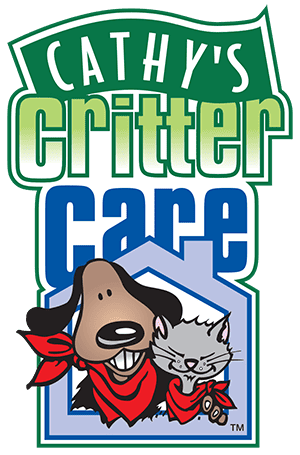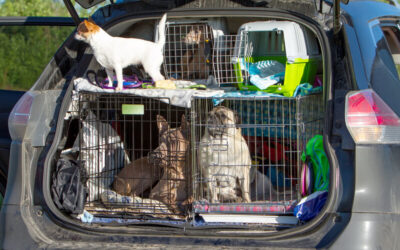For pet poisoning emergencies, having access to the right resources can make a critical difference. Animal poison control centers offer expert advice and guidance on handling poisoning incidents, providing pet owners with immediate steps to take while seeking veterinary care. Additionally, online veterinary advice forums can be a valuable source of information, offering insights and support from veterinary professionals and fellow pet owners.
Keeping these resources readily available, including contact numbers and websites, ensures that pet owners are prepared to act swiftly and effectively in the event of a poisoning emergency, potentially saving their pet’s life.
Animal Poison Control Centers
| Center Name | Contact Information | What to Expect When Calling |
|---|---|---|
| ASPCA Animal Poison Control Center | (888) 426-4435 | A consultation fee may apply. Experts will guide you through first aid steps and advise if veterinary care is needed. |
| Pet Poison Helpline | (855) 764-7661 | A fee is charged per incident. Provides 24/7 access to veterinary professionals who can assist with poison emergencies. |
Online Veterinary Advice Forums
| Forum Name | Website | Tips on How to Use Effectively |
|---|---|---|
| VetHelpDirect | www.vethelpdirect.com | Use the interactive tool to assess the urgency of your pet’s situation and read articles for additional advice. |
| PetCoach | www.petcoach.co | Post questions for free and receive advice from veterinary professionals. Remember to provide clear, concise details about your pet’s issue. |
Supporting Your Pet’s Recovery
After a pet has been treated for poisoning, the recovery period is crucial. Dietary adjustments may be necessary, including a bland diet or special food recommended by your veterinarian to ease the digestive system back into normal function. Monitoring and follow-up visits are essential to ensure that the pet is recovering as expected and to address any lingering effects of the poisoning.
Keeping a close eye on your pet’s behavior, appetite, and overall health during this time helps identify any complications early. A calm and comfortable environment will also support your pet’s healing process, helping them return to their normal, happy self.
Dietary Adjustments
After poisoning, pets may require a special diet to help their digestive system recover. This might include:
- Easily digestible foods: Such as boiled chicken or turkey and rice, which are gentle on the stomach.
- Bland diet: Temporary shift to bland, easily digestible food to help ease the digestive system back into normal function.
- Veterinarians often recommend specific dietary guidelines tailored to the pet’s needs during recovery, including:
- Portion control: Smaller, more frequent meals to ease digestion.
- Gradual reintroduction: Slowly mixing in regular food with the bland diet over several days.
Signs your pet is ready to return to their normal diet include:
- Consistent appetite: Showing regular interest in food.
- Normal bowel movements: Returning to their regular frequency and consistency.
- Energetic behavior: Displaying their usual levels of energy and enthusiasm.
Monitoring And Follow-Up Visits
Close observation of the pet’s behavior and health is crucial post-treatment. Owners should watch for:
- Improvement signs: Increased energy, appetite, and return to normal behaviors.
- Worsening conditions: Persistent lethargy, vomiting, or diarrhea, which could indicate complications.
Scheduled follow-up visits with the veterinarian are important to:
- Assess recovery progress: Ensuring the pet is healing as expected.
- Adjust care plan if necessary: Making any necessary changes to diet, medication, or treatment based on the pet’s recovery status.
Providing a calm and comfortable environment and continuing to monitor your pet closely during recovery are key steps in supporting their return to health.
What Is Pet Poisoning?
Pet poisoning occurs when animals ingest, inhale, or absorb toxic substances, leading to potentially harmful or fatal outcomes. This distressing situation can arise from exposure to a variety of substances commonly found in household environments, such as certain plants, human medications, foods toxic to pets (like chocolate for dogs), and chemicals (including cleaners and pesticides). The severity of poisoning depends on the type and amount of substance involved, the size and health of the pet, and how quickly treatment is sought.
Symptoms of poisoning in pets can range widely from vomiting, diarrhea, and lethargy to more severe signs like seizures or difficulty breathing, necessitating immediate veterinary attention. Preventing pet poisoning involves pet-proofing areas where hazardous substances are stored and educating pet owners about potential dangers, ensuring a safe environment for their animal companions.
Treatments For Pet Poisoning
Treatment for pet poisoning varies based on the substance ingested and the severity of the symptoms. Common interventions include inducing vomiting to expel the toxin, administering activated charcoal to absorb any remaining poison, and providing supportive care such as IV fluids and medications to stabilize the pet. Each case requires a tailored approach, often starting with a thorough assessment by a veterinarian to determine the most effective treatment plan.
A quick and appropriate medical response is essential to mitigate the effects of the poison and support the pet’s recovery process.
Inducing Vomiting
Inducing vomiting is often the first step in treating pet poisoning, aiming to remove the toxic substance before it’s fully absorbed. This procedure should only be performed under the guidance of a veterinarian, as it’s not suitable for all toxins or situations. It is not recommended when corrosive substances are ingested due to the risk of causing more harm on the way back up.
Potential risks or side effects include aspiration pneumonia if the pet inhales the vomit.
Administering Activated Charcoal
Activated charcoal is used to bind and neutralize toxins remaining in the stomach, preventing further absorption into the bloodstream. It’s a common treatment following the induction of vomiting or when vomiting isn’t safe or possible. Activated charcoal is typically administered orally, often using a syringe for accuracy.
The timing of administration is critical for its effectiveness, and in some cases, multiple doses may be required.
Providing Supportive Care
Supportive care includes treatments such as IV fluids to prevent dehydration and maintain organ function, medications to control symptoms like seizures or vomiting, and close monitoring for any changes in the pet’s condition. This care is critical for stabilizing the pet and aiding in recovery. Specific types of supportive care can vary widely based on the toxin involved and the pet’s symptoms.
| Treatment Type | Purpose | Details and Considerations |
|---|---|---|
| Inducing Vomiting | To remove ingested toxin | Only under vet guidance; not for corrosive substances. Risk of aspiration pneumonia. |
| Activated Charcoal | To absorb and neutralize toxins | Administered orally, often with a syringe. Timing is critical; multiple doses may be needed. |
| Supportive Care | To stabilize and support recovery | IV fluids for dehydration, medications for symptoms, and close monitoring for complications. |
Each of these treatments plays a vital role in the overall strategy to combat the effects of poisoning in pets, tailored to the specific needs and condition of the animal.
What Is Pet Poisoning?
Pet poisoning occurs when animals ingest, inhale, or absorb toxic substances, leading to potentially harmful or fatal outcomes. This distressing situation can arise from exposure to a variety of substances commonly found in household environments, such as certain plants, human medications, foods toxic to pets (like chocolate for dogs), and chemicals (including cleaners and pesticides). The severity of poisoning depends on the type and amount of substance involved, the size and health of the pet, and how quickly treatment is sought.
Symptoms of poisoning in pets can range widely from vomiting, diarrhea, and lethargy to more severe signs like seizures or difficulty breathing, necessitating immediate veterinary attention. Preventing pet poisoning involves pet-proofing areas where hazardous substances are stored and educating pet owners about potential dangers, ensuring a safe environment for their animal companions.
What Are Common Causes Of Pet Poisoning?
Pet poisoning can result from exposure to various harmful substances, which are often found in everyday environments. Foods toxic to pets, such as chocolate, xylitol (a sweetener), and grapes and raisins, pose significant risks if ingested. Additionally, poisonous plants like lilies and sago palm can be deadly to pets that chew or ingest them.
Household chemicals are another common cause, with antifreeze and rodenticides being particularly dangerous due to their palatability and lethal ingredients. Recognizing these common hazards and understanding how they affect pets is crucial for prevention and ensuring pets’ safety and well-being.
Foods Toxic To Pets
- Chocolate: Contains theobromine, toxic to both dogs and cats, leading to severe health issues.
- Xylitol: A sugar substitute found in sugar-free products, highly toxic to pets, and can cause liver failure.
- Grapes and Raisins: Even small amounts can cause kidney failure in dogs, making them extremely dangerous.
Poisonous Plants
- Lilies: Highly toxic to cats; ingestion can lead to kidney failure.
- Sago Palm: Contains cycasin, leading to liver failure, and is toxic to both dogs and cats.
Household Chemicals
- Antifreeze: Contains ethylene glycol, which is sweet-tasting but deadly, leading to kidney failure.
- Rodenticides: Poisons designed to kill rodents but can be fatal to pets if ingested, causing internal bleeding or neurological damage.
How To Recognize Signs Of Poisoning In Pets?
Identifying poisoning in pets early is crucial for their survival. Signs in dogs include vomiting, seizures, and excessive drooling, indicating immediate distress. Signs in cats often manifest as lethargy, drooling, or sudden collapse.
These symptoms suggest that a pet has ingested a toxic substance and requires urgent veterinary care. Recognizing these signs promptly can be the difference between life and death, emphasizing the importance of pet owners being informed and vigilant.
Signs In Dogs
- Vomiting: An immediate reaction indicating potential ingestion of toxic substances.
- Seizures: A critical sign of severe poisoning, necessitating urgent veterinary care.
Signs In Cats
- Lethargy: Demonstrates a significant decrease in energy, possibly due to poisoning.
- Drooling: Excessive salivation can be a reaction to ingesting a toxic item.
Immediate Steps If You Suspect Pet Poisoning
If you suspect your pet has been poisoned, act quickly and follow these specific steps to ensure their safety:
- Remove your pet from the source of poison to prevent further ingestion. This is the first and most crucial step to avoid additional exposure.
- Do not attempt home remedies or induce vomiting unless explicitly instructed by a professional. Incorrect actions can worsen the situation.
- Contact your veterinarian or a pet poison control center immediately for advice. Be ready to provide details about what your pet ingested, how much, and when. This information is vital for determining the next steps in care.
- Gather any packaging or material related to the poison to take with you to the vet. This can help the veterinary team make a faster and more accurate diagnosis.
- Safely transport your pet to the veterinary clinic if advised. Ensure their comfort and safety during transport by using a pet carrier or a secure method to prevent further stress or injury.
- Prepare information for the vet or poison control, including your pet’s weight, any health issues, the substance ingested, the amount, and the time of ingestion. Having this information readily available can expedite the treatment process.
Quick and decisive action can significantly increase the chances of a full recovery for your pet.
Preventing Pet Poisoning
Preventing pet poisoning involves proactive steps to create a safe environment for your pets. Store all chemicals and medications out of reach, and be mindful of plants in and around your home, removing any that are toxic to pets. Educate yourself and your family about foods that are harmful to pets, such as chocolate and xylitol, to prevent accidental ingestion.
Regularly inspect your home for potential hazards, and consider pet-proofing areas where dangerous items are stored. Awareness and prevention are key to keeping your pets safe from common poisoning risks.
Safe Storage Of Chemicals
Ensure all household chemicals, including cleaners, pesticides, and antifreeze, are securely stored in cabinets or shelves out of pets’ reach. Utilizing child-proof locks can add an extra layer of safety, preventing curious pets from accessing potentially lethal substances.
Identifying Toxic Plants
Familiarize yourself with the plants both inside your home and in your garden, removing any that are known to be toxic to pets. Consult a comprehensive list of toxic plants from reliable sources such as pet poison control centers or veterinary websites to ensure your pet’s environment is safe.
Seeking Veterinary Care For Poisoning
When a pet shows signs of poisoning, immediate veterinary care is crucial. Contact your veterinarian or an emergency pet hospital right away, even if the symptoms seem mild. Be prepared to inform them about the substance ingested, the quantity, and the time of exposure.
During the veterinary visit, you can expect a series of actions and questions aimed at effectively diagnosing and treating your pet. Here’s what to anticipate:
- Detailed Questions: The vet will ask for specifics about the poisoning incident, including the type of substance ingested, the amount, and the timing. Be as detailed as possible.
- Physical Examination: A thorough physical exam will be conducted to assess your pet’s condition.
- Diagnostic Tests: Depending on the situation, the vet may perform blood tests, urinalysis, X-rays, or other diagnostics to understand the extent of the poisoning.
- Treatment Plan: The vet will outline a treatment plan, which may include inducing vomiting, administering activated charcoal, IV fluids, medications, or other interventions.
Finding an Emergency Vet Clinic: If you don’t have the contact information for an emergency vet clinic, a quick online search can provide you with nearby options. It’s advisable to have this information handy before any emergency arises. The Importance of Pet Insurance: Veterinary care for poisoning can be expensive, especially if it involves overnight stays or extensive treatment.
Pet insurance can help mitigate these costs and is something to consider for all pet owners. Quick action and detailed information can greatly enhance the effectiveness of treatment, potentially saving your pet’s life. Always keep emergency contact numbers for your veterinarian and local pet poison control centers readily accessible to ensure a rapid response in case of a poisoning incident.
Treatments For Pet Poisoning
Treatment for pet poisoning varies based on the substance ingested and the severity of the symptoms. Common interventions include inducing vomiting to expel the toxin, administering activated charcoal to absorb any remaining poison, and providing supportive care such as IV fluids and medications to stabilize the pet. Each case requires a tailored approach, often starting with a thorough assessment by a veterinarian to determine the most effective treatment plan.
A quick and appropriate medical response is essential to mitigate the effects of the poison and support the pet’s recovery process.
Inducing Vomiting
Inducing vomiting is often the first step in treating pet poisoning, aiming to remove the toxic substance before it’s fully absorbed. This procedure should only be performed under the guidance of a veterinarian, as it’s not suitable for all toxins or situations.
Administering Activated Charcoal
Activated charcoal is used to bind and neutralize toxins remaining in the stomach, preventing further absorption into the bloodstream. It’s a common treatment following the induction of vomiting or when vomiting isn’t safe or possible.
Providing Supportive Care
Supportive care includes treatments such as IV fluids to prevent dehydration and maintain organ function, medications to control symptoms like seizures or vomiting, and close monitoring for any changes in the pet’s condition. This care is critical for stabilizing the pet and aiding in recovery.
Supporting Your Pet’s Recovery
After a pet has been treated for poisoning, the recovery period is crucial. Dietary adjustments may be necessary, including a bland diet or special food recommended by your veterinarian to ease the digestive system back into normal function. Monitoring and follow-up visits are essential to ensure that the pet is recovering as expected and to address any lingering effects of the poisoning.
Keeping a close eye on your pet’s behavior, appetite, and overall health during this time helps identify any complications early. Providing a calm and comfortable environment will also support your pet’s healing process, helping them return to their normal, happy self.
Dietary Adjustments
After poisoning, pets may require a special diet to help their digestive system recover. This might include easily digestible foods or a temporary shift to a bland diet. Veterinarians often recommend specific dietary guidelines tailored to the pet’s needs during recovery.
Monitoring And Follow-Up Visits
Close observation of the pet’s behavior and health is crucial post-treatment. Owners should watch for any signs of lingering effects or complications from the poisoning. Scheduled follow-up visits with the veterinarian are important to assess the pet’s recovery progress and make any necessary adjustments to their care plan.
Resources For Pet Poisoning Emergencies
For pet poisoning emergencies, having access to the right resources can make a critical difference. Animal poison control centers offer expert advice and guidance on handling poisoning incidents, providing pet owners with immediate steps to take while seeking veterinary care. Additionally, online veterinary advice forums can be a valuable source of information, offering insights and support from veterinary professionals and fellow pet owners.
Keeping these resources readily available, including contact numbers and websites, ensures that pet owners are prepared to act swiftly and effectively in the event of a poisoning emergency, potentially saving their pet’s life.
Animal Poison Control Centers
Animal poison control centers provide 24/7 assistance to pet owners in the midst of poisoning emergencies. They offer immediate, expert advice on managing various toxic exposures, guiding pet owners on the crucial first steps to take before veterinary care is accessible.
Online Veterinary Advice Forums
Online veterinary advice forums are invaluable resources where pet owners can seek guidance and share experiences regarding pet poisoning. These platforms facilitate access to professional insights from veterinarians, alongside community support, aiding pet owners in effectively navigating the complexities of poisoning incidents.




